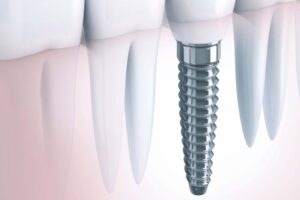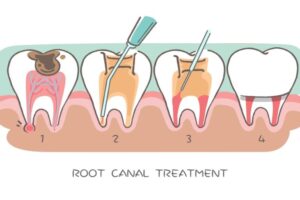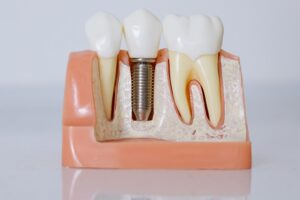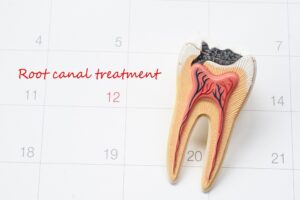Your body happens to be a very complex network of interlinked systems, and what affects one part can profoundly impact another. This intricate relationship is vividly illustrated in the connection between dental health and diabetes. While it may seem surprising, these two seemingly unrelated aspects of your health are intimately intertwined. Let’s explore the fascinating and important link between dental health and diabetes.
Understanding Diabetes
First, let’s grasp the basics. Diabetes, a chronic condition, is usually indicated by elevated blood sugar levels. We have two primary types of diabetes:
One is Type 1, an autoimmune condition where the immune system of your body erroneously attacks and eliminates insulin-producing cells in the pancreas, and the other is Type 2, which typically develops later in life and involves the body’s inability to use insulin effectively.
The Dental-Diabetes Connection
Increased Risk of Gum Disease: Individuals with diabetes are more susceptible to gum disease (periodontitis). High blood sugar levels can weaken the body’s ability to combat bacterial infections, including those in the mouth. This paves the way for gum disease to develop and makes it harder for the body to heal once it does.
Bidirectional Relationship: The relationship between diabetes and oral health is bidirectional. Not only does diabetes increase the risk of dental problems, but poor oral health can also exacerbate diabetes. Gum disease, in particular, can lead to insulin resistance, making it challenging to manage blood sugar levels effectively.
Symptoms and Warning Signs: Dry mouth, frequent infections, slow healing of oral wounds, and a persistent bad taste or odor can all be signs of diabetes-related oral issues. Dentists are often the first to identify these warning signs, which can prompt further diabetes testing.
Inflammation and Oxidative Stress: Both diabetes and gum illness are associated with oxidative stress and inflammation. Inflammation can worsen insulin resistance in diabetes, while oxidative stress often impairs cells and contributes to complications in both conditions.
Maintaining Dental Health with Diabetes: Now that we understand the intricate connection between dental health and diabetes, it’s crucial to know how to manage both effectively.
Control Blood Sugar: Managing blood sugar levels through medication, diet, and exercise is paramount for people with diabetes. Stable blood sugar can help prevent and manage dental issues.
Oral Hygiene: Maintain impeccable oral hygiene by brushing, flossing, and regular dental check-ups. Your dentist can help monitor your oral health and provide guidance on managing diabetes-related dental concerns.
Regular Dental Check-ups: Regular dental visits are crucial for maintaining oral health and early detection of any diabetes-related issues.
Collaboration: Ensure that your dentist and healthcare provider know your diabetes status and work together to manage both conditions effectively.
Quit Smoking: Smoking exacerbates gum disease and diabetes complications. Quitting smoking is meant to significantly improve your oral and overall health.
In conclusion, the relationship between dental health and diabetes is a significant and complex one.
People with diabetes must be vigilant about their oral health, as it can profoundly affect their overall well-being. By understanding and addressing this connection through proper dental care, blood sugar management, and collaboration with healthcare providers, individuals with diabetes can lead healthier, more fulfilling lives. Remember, a healthy smile often reflects a healthier you, inside and out.







